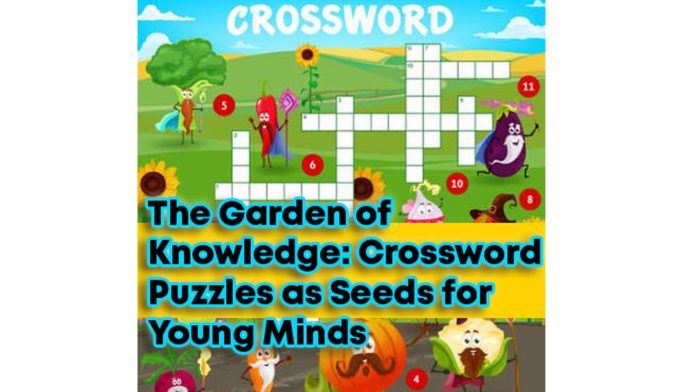In the expansive garden of education, crossword puzzles serve not just as tools of entertainment but as seeds that plant the foundations for the intellectual growth of young minds. The National Centre for Excellence has highlighted their unique role, demonstrating how these structured lattices of letters and words can cultivate cognitive and linguistic abilities, much like a gardener carefully tends to young saplings, nurturing them into full bloom.
Solving a crossword puzzle mirrors the journey of a young gardener tending to a growing plant. It involves the careful application of learned knowledge, intuition, and refined skill, where each answer filled in is akin to planting the right seed at just the right moment. The nuanced challenge requires not just understanding individual clues but also recognizing their interconnectedness, much like how a gardener must harmonize each plant in a garden to create a cohesive and flourishing ecosystem.
This educational exercise transcends the simplicity of a mere hobby; it is like a garden in the mind, where vocabulary, memory, and analytical skills thrive. Each solved puzzle is a completed season, each word discovered a bloom unveiled. These linguistic exercises shape not only children’s knowledge but also their problem-solving strategies, encouraging them to approach puzzles—and by extension, real-life challenges—with a gardener’s patience and an artist’s creativity.
Just as a garden comprises various plants, each with its unique requirements and growth patterns, the world of crossword puzzles offers a range of challenges that can adapt to the evolving abilities of young solvers.
Beginners may start with simple, straightforward clues, akin to planting easy-to-grow flowers, gradually progressing to more complex puzzles that demand deeper thought and a broader vocabulary, much like cultivating intricate floral arrangements that require a comprehensive understanding of botany and gardening techniques.
Moreover, solving crosswords fosters patience and perseverance in young minds. Just as nurturing a garden requires practice and dedication, so does completing a challenging puzzle. The satisfaction derived from solving a particularly tricky crossword can instill a sense of achievement and self-confidence in children, much like the pride a young gardener feels upon successfully growing a challenging plant.
The benefits of incorporating crossword puzzles into a child’s education are manifold. Not only do they enhance verbal skills and cognitive agility, but they also introduce young solvers to a wide range of cultural, historical, and scientific concepts, expanding their horizons much like a well-tended garden can evoke varied landscapes and emotions. This exposure fosters natural curiosity and a love for learning, encouraging children to explore topics beyond the puzzle grid.
Crossword puzzles also offer a unique way for families to bond. Just as gardeners come together to create a vibrant landscape, families can collaborate on solving puzzles, discussing possible solutions, and sharing the joy of discovery. This collaborative approach reinforces social bonds and communication skills, fostering a sense of teamwork and mutual support.
In conclusion, the humble crossword puzzle, much like a meticulously planned garden, plays a crucial role in the intellectual and emotional development of children. It is a multifaceted tool that, when used wisely, can nurture a balanced and well-rounded mind ready to face the complexities of the world with confidence and creativity.
As educators and parents, encouraging children to delve into the world of crosswords is akin to inviting them to cultivate a grand intellectual garden, where every word written and every problem solved is a step toward mastering the beautiful art of thinking.
References:

















